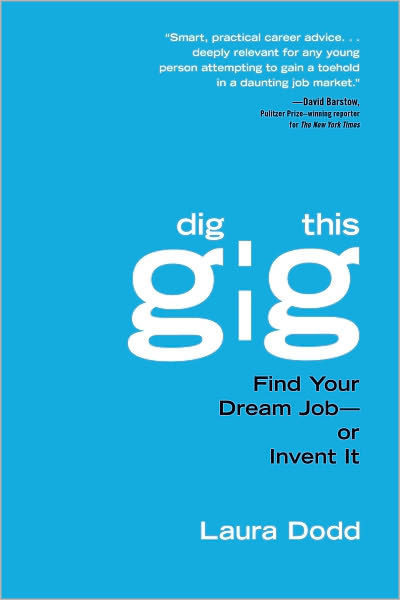I liked this book because I am doing this myself. I am trying to create my own gig. Let me put it this way: you can try to serve one boss who carefully directs you, or you can try to serve multiple bosses (clients) who may have varying goals for your services.
Unlike most of those featured in the book, I am older, trying to start my own business for the first time at age 50. It would be nice to be twentysomething, but could I afford to sacrifice the knowledge that I have gained?
I think not. The book takes an approach of reviewing four young people each in seven areas of employment, followed by an elder statesman who is an exemplar in that area.
The seven areas are:
- Healthcare
- Entertainment
- Doing Good (Nonprofit, Teacher)
- Green (Environmental)
- News
- Government
- Unemployed
The book is well-written, and will provide inspiration to those looking to carve out a new niche in the current economy.
Quibbles
I must admit skepticism that a large number of people can “Dig this Gig.” Most of the needs of mankind are similar, and unless you find a special point of unmet need, unusual gigs are hard to find. I view much of what is said here as trying to accomplish something difficult. Most people would be better off trying to do something conventional. After all, that is why it is conventional.
Who would benefit from this book:
If you have a friend out of work but who is energetic, this book could be valuable. Or someone competent and employed, but frustrated… this book could be valuable. But anyone who is not motivated to work hard — sorry, this book will be of no help.
If you want to, you can buy it here: Dig This Gig.
Full disclosure: This book was sent to me after the author asked if I would like to see it.
If you enter Amazon through my site, and you buy anything, I get a small commission. This is my main source of blog revenue. I prefer this to a “tip jar” because I want you to get something you want, rather than merely giving me a tip. Book reviews take time, particularly with the reading, which most book reviewers don’t do in full, and I typically do. (When I don’t, I mention that I scanned the book. Also, I never use the data that the PR flacks send out.)
Most people buying at Amazon do not enter via a referring website. Thus Amazon builds an extra 1-3% into the prices to all buyers to compensate for the commissions given to the minority that come through referring sites. Whether you buy at Amazon directly or enter via my site, your prices don’t change.




